I hated school as a kid.
I hated that my clothes didn’t fit. I hated that every room in our school, Pawcatuck Junior High, smelled like a stale fart. I hated being picked on constantly.
Most of all I hated being bored every fucking day. School was pure hell, something to be endured by daydreaming through class after class.
I was fortunate, however, in that I picked up things quickly. Even though I didn’t pay attention in class I did well in school. This changed pretty quickly when I got to college, however. My first semester at Boston University I went from a straight-A student to a solid C-minus faster than you can say, “Thursday Night Jello Shots at Dad’s Diner”.
This woke me up pretty goddamned quickly, and I realized that I had learned almost nothing in my previous 12 years of school. I hadn’t learned discipline, focus, or how to solve problems. I hadn’t learned what I now consider to be the single most important skill I currently have. The skill that would help me figure out how to engineer complex software systems and build successful businesses after failing several times. The skill that would ultimately allow me to travel the world with my family for as long as I like.
I had never learned how to learn. Facts, sums, trivia, historical quotes, and all manner of other useless crap had been crammed down my throat, but I had never been taught how to learn anything.
Also Check Out – The Most Dangerous Fear
So before going home for winter break I went to the university bookstore and grabbed anything off the shelves that looked helpful. I left with a stack of books and devoured them all over the break, taking notes and trying out new techniques.
I spent the next semester teaching myself in different ways until I discovered the methods that worked best for me. My grades shot up and I kept them there.
More importantly, I gained a whole new perspective on learning that would provide me with a powerful set of tools that I would use to change my life.
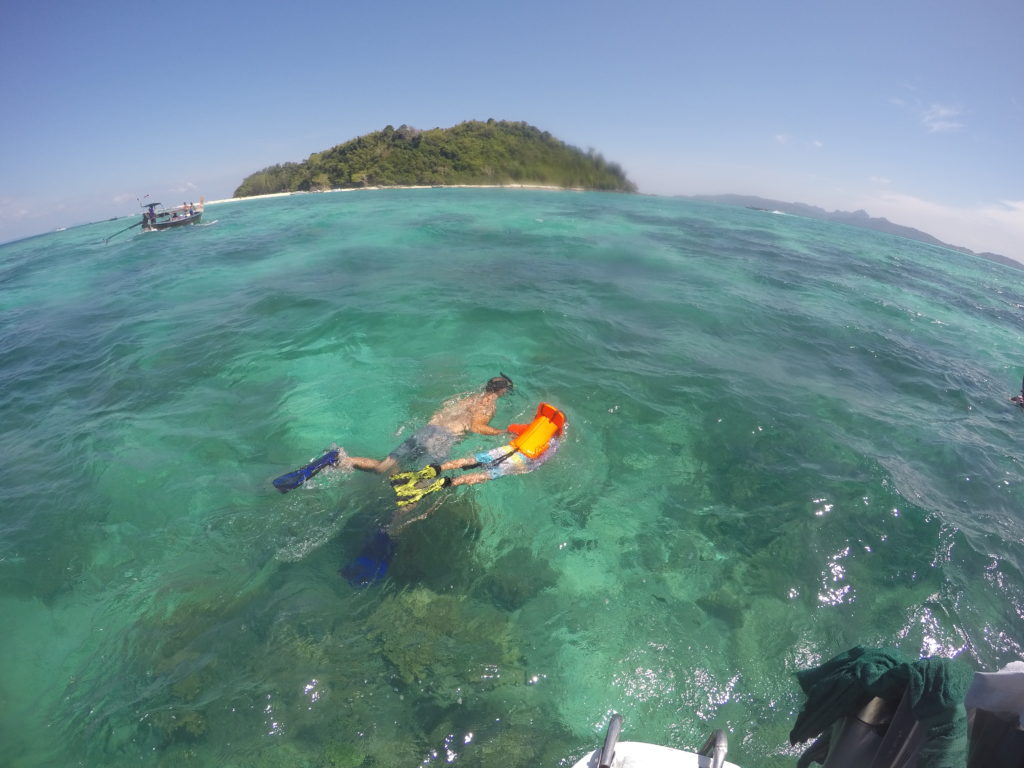
Hitting the Road
In 2016, when my wife and I were planning the start of our open-ended world travel, one of the questions that we heard most often was about our son, Braeden: What about school?
He was only 4 at the time, so we answered those questions with a brisk, He’s in preschool. How hard can it be? Privately, though, I worried that I wouldn’t be able to give him the tools he would need to be a functioning human. I had visions of my son living in a dirty cardboard box on the sidewalk, holding a hand-lettered sign: My folks traveled around the world and all I got was this shitty education.
I started asking around, and a homeschooling couple we’re friendly with provided us with a treasure trove of helpful resources and suggestions. We immediately started sifting and digging, trying to absorb as much as we could. Thank you, Jennifer and Adam!
We left for Paris in July of 2016, and for the first couple of months we spent so much time in museums and galleries that we didn’t worry about doing any formal teaching, we just encouraged his curiosity and answered all of his questions.
By winter, though, we felt we had to start teaching him the basics of reading, writing, and arithmetic. We started with workbooks. Then we added flash cards. Then we tossed in some apps on the iPad and phone.
We experimented for months, hit a few walls, and made some false starts. But by the following summer we had figured some things out, and by his fifth birthday the boy was reading a bit, writing some, blowing through addition/subtraction problems, and beginning to understand multiplication and division.

Basics After Breakfast
We spend a few minutes every morning on the basics: reading, writing, and mathematics. We start with math, and we usually have him work on a single page from a workbook (he’s 5 now and using books for Grades 1 and 2). Every few days we’ll give him the option of working with flash cards instead, and perhaps once a week we’ll let him play a game like Dragon Box or Splash Math.
Once he’s worked on math, which usually takes 5-15 minutes, then we move on to reading and writing. He’ll do a page or two in a workbook or play with some beginning-and-ending-sound flashcards. We’ll take out 5-8 endings (e.g. “oat”, “at”, “ike”, etc) and all of the beginning cards (e.g. “t”, “l”, “bl”, “fl”, “cr”, etc) and let him mess around with them, mashing different sounds together to make words. Every few days we might suggest that instead of the workbook he can read some pages of a Dr. Seuss book to us, or sometimes he writes a letter, postcard, or recipe.
Also Check Out – The Completely Free (Idiot’s) Guide to Becoming a Digital Nomad
Both math and reading/writing together usually take 15-30 minutes if there’s no complaining or screwing around. Some days there’s plenty of the latter, other days there’s very little and he gets through the work quickly.
I quickly realized that the math and reading/writing were secondary to the real skills he was learning in these morning sessions: discipline and focus. Some days he’s well rested and comfortable and he dives right into the work. He’ll finish one problem, move right into the next, and repeat until he’s finished. More often it’s difficult for him to start, and he complains that it’s too hard, or that the chair is uncomfortable, that it’s boring, etc. Or once he starts he’ll complete a problem and then become fascinated by the end of his pencil for several minutes.
I’ve found that if I’m patient and gently repeat, “Ok, what’s next?” until he gets back to work, we can get moving again. There are times when he simply refuses to go on, and I quietly tell him that we’re going to finish no matter how long it takes, and he should let me know when he’s ready to start working again. Eventually he’ll get back to work, and when he does he’s focused and determined.
The amount of work is small so we’re not asking him to suffer through a marathon every day. We ask him to do just a little bit every single day, and I believe that is the key to his progress so far.
The subject doesn’t seem to matter much, nor do the apps or the workbooks or the environment. What matters is consistency. Just a little bit, every day, for months. It’s been extremely effective with him to this point, and I’m guessing that the same basic principle will apply for the remainder of the time we’re teaching him.
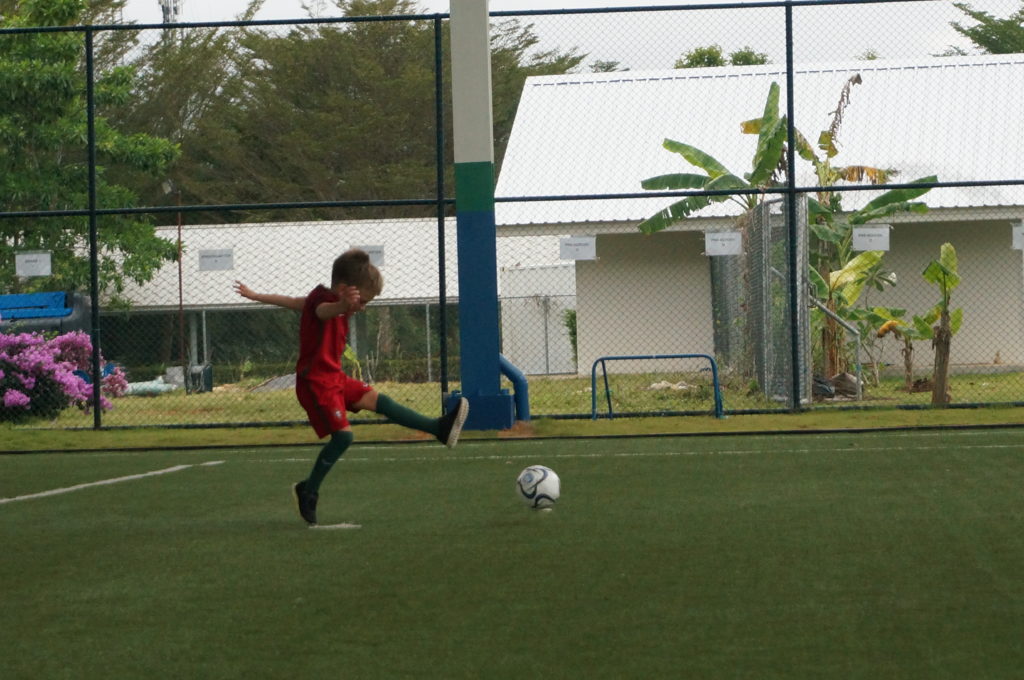
Recess, or Learning by “Soakin’ it Up!”
The rest of the day is pretty much free form. We might go to a zoo, a museum, a historical site, or an aquarium. Some days we’ll go to the beach or do some sightseeing. We try to keep a pen handy because he asks a ton of math questions, and I like to sketch them out for him so he can see how I’m thinking about the problem. I’ll also pull out my phone and let him do calculations himself with the calculator if he asks a question like, “Daddy, what’s 318 times 42?” These types of questions are his favorite.
At the end of the day we read a chapter of a book to him on a tablet or phone. A few months ago we read Harry Potter and the Sorcerer’s Stone and followed it up with Harry Potter and the Chamber of Secrets. Halfway through, however, he requested that we stop because it was too scary. We switched to Lewis Carroll’s Alice’s Adventures in Wonderland which is firing up his imagination and delighting him.
Also Check Out – Under the Tuscan…Never Mind
We try to keep him stocked with as many physical books and comics as we can carry. His backpack is usually crammed with Legos and art supplies which he uses when he has downtime. He learns by immersing himself in the things around him, so the more materials we can give him, the better.
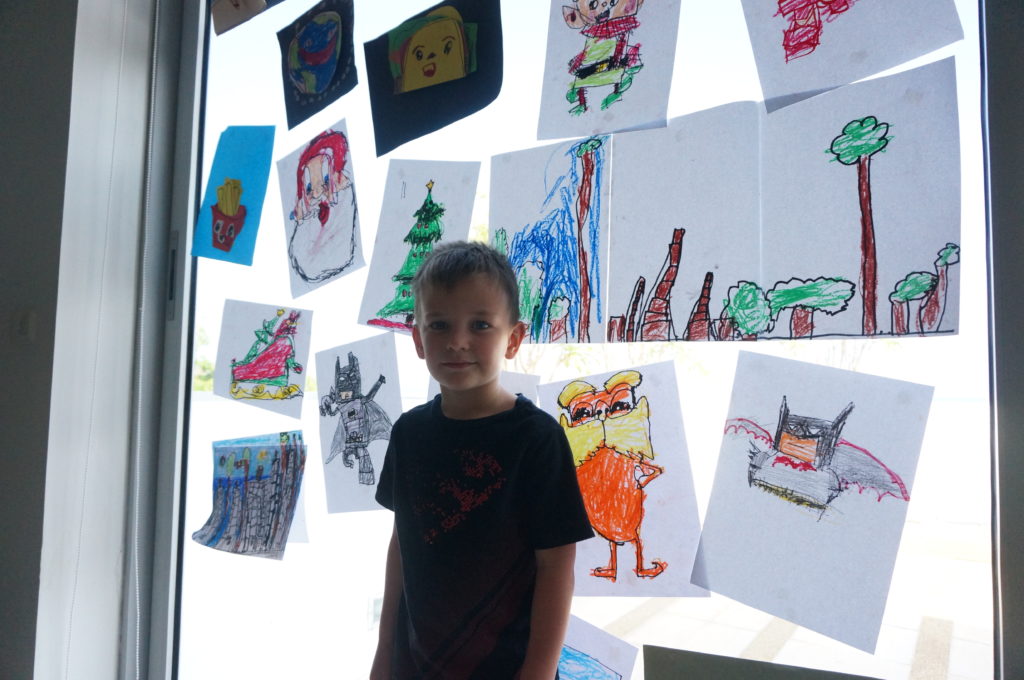
…And Then There’s Real School
When we stay put for more than a couple of weeks we try to check him into a local school, or art classes, or an organized sport like soccer. He spends time with other kids at playgrounds, beaches, and parks, but it’s useful for him to spend interact with other kids and adults, away from us.
He’s attended schools in Thailand, Mauritius, and Vietnam, which were amazing experiences both for him and us. He’s learning how to be resilient in unexpected situations without our support, and to communicate and interact with other children and adults even if he doesn’t know the language or customs.
During this last year and a half of travel my wife and I have developed the confidence that we can be thrown into any sort of situation, and it looks like the same is happening with our son. Which makes me feel pretty good about his (decidedly unorthodox) education.
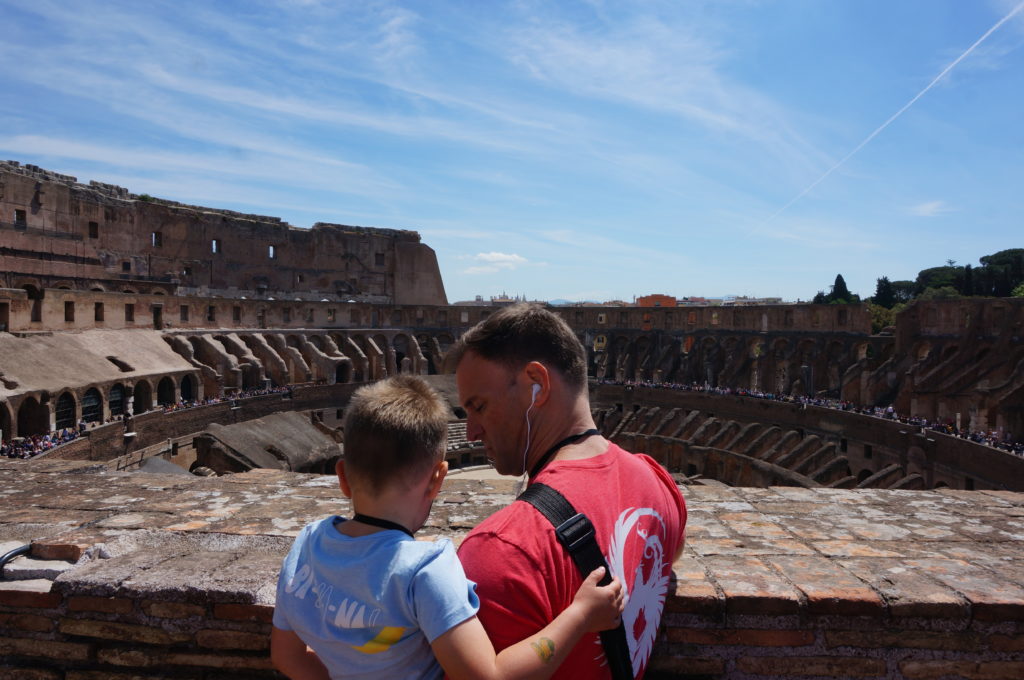
Stick With It
It’s worth saying again: the key is consistency. Once we put reading, writing, and arithmetic as the first items of the day and refused to take days off we saw big improvements quickly.
It’s not a habit yet, but when it is we’ll put something else in that prized “first slot of the day” and shift reading, writing, and math to later in the morning. Project-based work might be next. Or programming-related exercises and games.
How are you homeschooling/roadschooling your child? What has worked for you? What hasn’t?

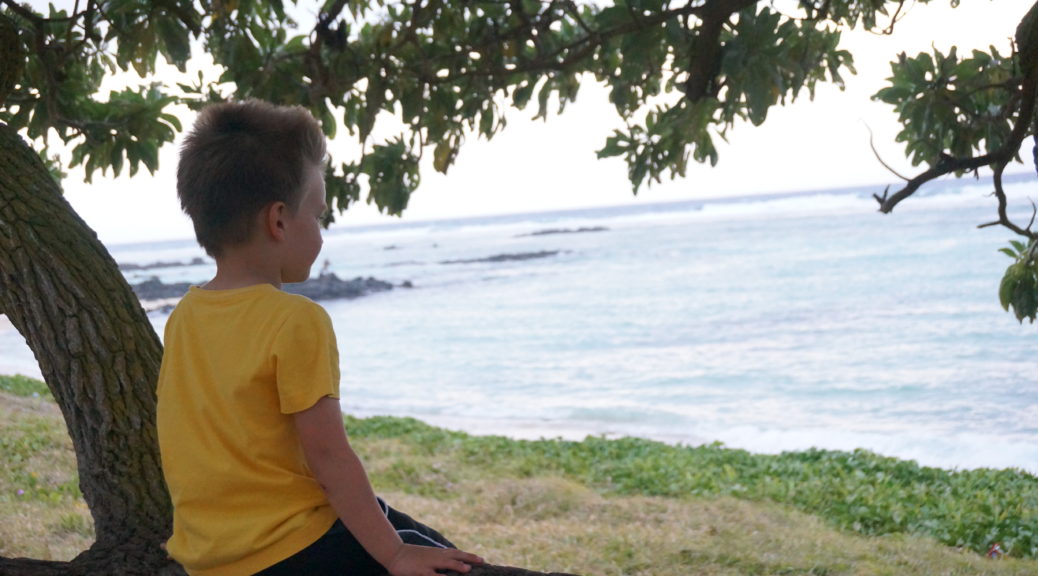
It was so nice to read this post Nathan. We are just about to set off on our nomadic travels and homeschooling scared me a bit. Reading this put my mind at ease a bit. Thank you. Our children are 10, 8 and 2 this year.
That’s fantastic, Lindsay, congratulations! It will be challenging, for sure, but the challenges are well worth the work and you’ll get a lifetime’s worth of memories in return. Don’t hesitate to reach out if you have questions or need info. Can’t wait to see how it goes!